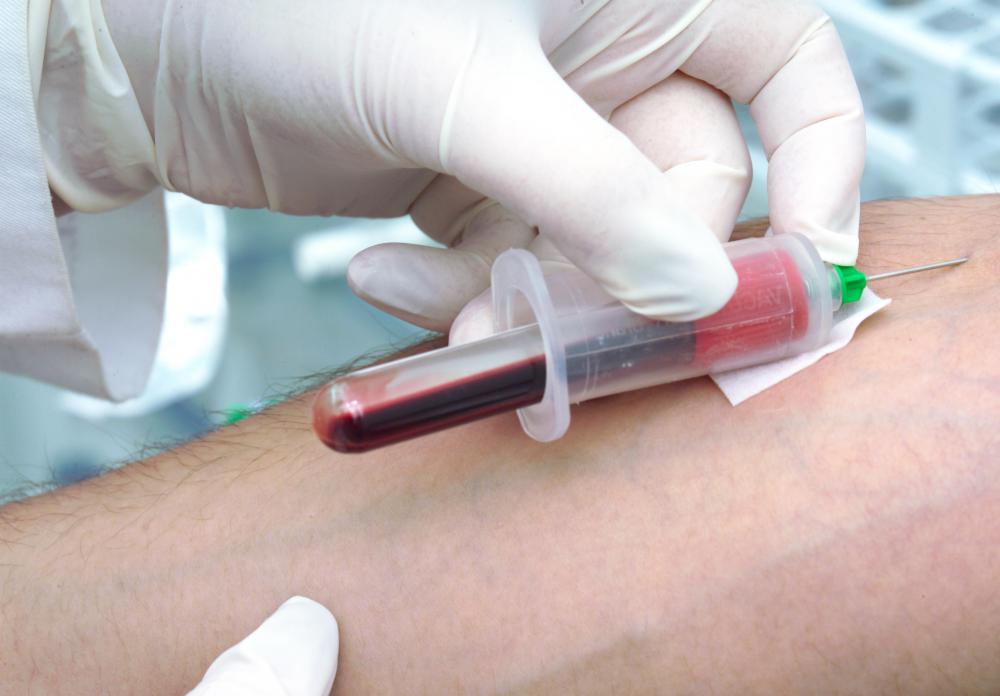At TheHealthBoard, we're committed to delivering accurate, trustworthy information. Our expert-authored content is rigorously fact-checked and sourced from credible authorities. Discover how we uphold the highest standards in providing you with reliable knowledge.
What is Myoglobinuria?
Myoglobinuria describes a condition in which a protein known as myoglobin is present in the urine. Myoglobin carries oxygen to the skeletal and heart muscles in order to maintain their normal functions. When rhabdomyolysis, or muscle destruction occurs, myoglobin is usually released in the blood stream. It is then filtered by the kidneys and excreted in the urine. Myoglobinuria usually occurs in trauma patients who have crush injuries and individuals who perform heavy physical exercises.
Athletes are at risk for muscle damage due to a combination of factors such as dehydration, poor training, and heat exhaustion. In children, viral infections like the flu can lead to rhabdomyolysis and myoglobinuria. Other conditions associated with myoglobinuria include potassium deficiency, metabolic disease like phosphofructokinase deficiency, and hereditary muscular disease such as McArdle's disease. Some dietary supplements, drug abuse, and prescription drugs may also be implicated in myoglobinuria.

The symptoms generally presented by patients suffering from rhabdomyolysis are muscle pain and muscle weakness that often results in difficulty moving around. The laboratory test to detect myoglobinuria, called urine myoglobin, involves examining a sample of the patient's urine. Urine color may become darker due to the presence of myoglobin. Once trauma patients and those with possible muscle injuries are evaluated for myoglobinuria, they are usually treated promptly to prevent the onset of complications.

One serious complication of myoglobinuria is acute kidney injury, in which a patient suffers sudden decrease or loss of kidney function. This usually occurs when myoglobin forms deposits in the cells of the kidneys and causes obstruction or toxic damage to the area. Patients with acute kidney damage usually experience confusion, decreased urination, swelling in several body parts, and bleeding. Other complications are hyperkalemia, which is the increase of potassium in the blood, and hypocalcemia, which is the decrease in blood calcium levels.

A blood test called creatine kinase (CK) test may also be used to evaluate patients for muscle damage. Creatine kinase is a protein also present in the brain, heart, and skeletal muscles, and its levels usually become elevated when muscle injury occurs. Patients found to have myoglobin in the urine or elevated levels of CK in the blood are frequently admitted for treatment. An intravenous (IV) fluid is often administered to rehydrate patients, and sodium bicarbonate may be added to make the urine alkaline. Other medications may also be given to enhance urination.
AS FEATURED ON:
AS FEATURED ON:
















Discuss this Article
Post your comments